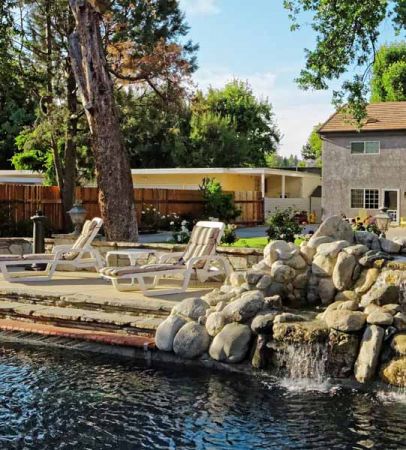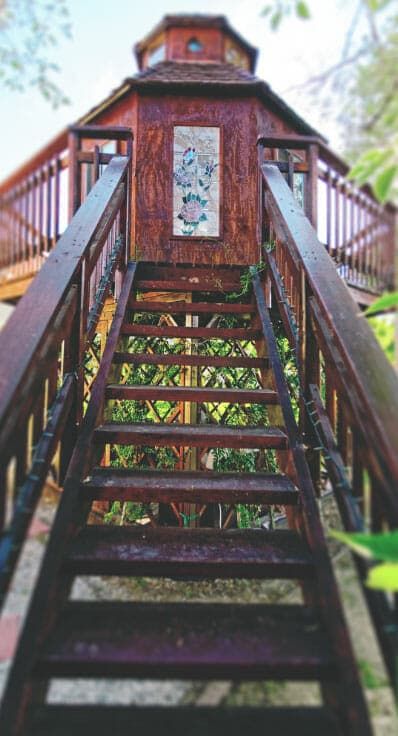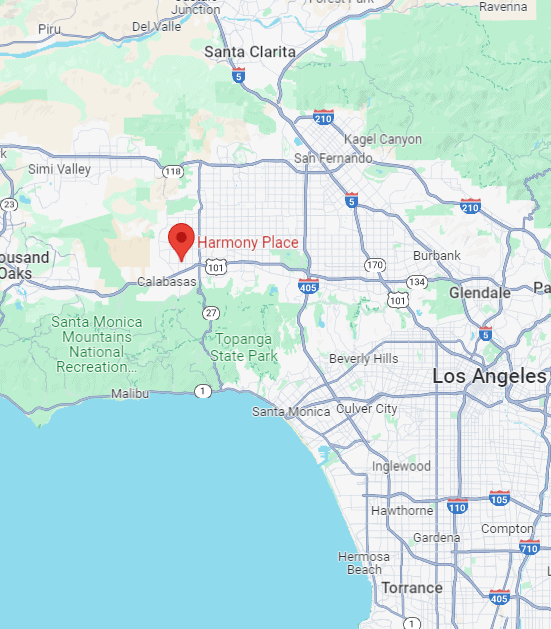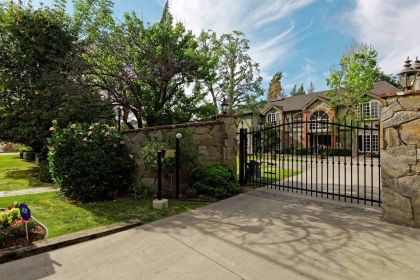Cost of Medication-Assisted Treatment in Los Angeles
Harmony Place runs drug and alcohol addiction rehab centers committed to assisting you in managing Medication-Assisted Treatment (MAT) costs in Los Angeles. Our knowledgeable team is here to help you understand MAT expenses. If you’re seeking affordable addiction treatment, we offer economic healthcare options to help you handle the cost of rehabilitation services.
How much does MAT cost? We’ve got you covered. Most substance abuse recovery clinics, including Harmony Place, accept insurance coverage for MAT. If you do not have insurance, our cost-effective treatment options will clarify MAT pricing, healthcare budgeting, and MAT payment options. Additionally, we offer dual diagnosis treatment if you’re simultaneously struggling with co-occurring disorders.
What Is Medication-Assisted Treatment?
Medication-Assisted Treatment (MAT) plays a crucial role in addiction rehabilitation programs, significantly lowering the chances of overdose and death. The primary objectives of MAT are to enhance treatment retention, reduce cravings, stabilize the body, and ease withdrawal symptoms. This method is widely used for managing both opioid use disorder and Alcohol Use Disorder (AUD).
Integrating counseling and behavioral health therapies with FDA-approved medications has shown success in fostering long-term sobriety. Contact us at Harmony Place to learn more about our substance abuse treatment fees, the cost of MAT in Los Angeles, and our affordable recovery solutions.
How Much Does Medication-Assisted Treatment Cost in Los Angeles, CA?
Medication-Assisted Treatment (MAT) financial considerations without insurance coverage in Los Angeles will vary based on the prescribed medication, any additional services included in your treatment, and your chosen facility. Monthly medication costs typically range from $100 to $450. Outpatient MAT programs, Intensive Outpatient Programs (IOPs), and comprehensive MAT programs can range from $500 to $15,000 for a 30-day duration.
Additional treatment services, including therapy and medical detox, may incur extra charges. Individual therapy sessions can cost up to $200, while medical detox costs can fluctuate between $250 and $800 per day. For more information about the financial aspects of treatment or how to pay for MAT, please contact us at Harmony Place.
Medication-Assisted Treatment Stats in LA
Medication-Assisted Treatment (MAT) in Los Angeles is a proven approach to addiction recovery that combines FDA-approved medications with behavioral therapies and counseling to tackle substance abuse, particularly alcohol and opioid addiction. The alarming statistics surrounding opioid addiction underscore the urgent need to expand MAT programs in Los Angeles.
According to the California Overdose Dashboard, there were 7,385 opioid-related fatalities and over 21,000 emergency room visits in 2022. Los Angeles has made significant strides to improve access to MAT financial assistance, especially for at-risk populations involved in the criminal justice system. In November 2020, the Countywide Criminal Justice Coordination Committee (CCJCC) partnered with Health Management Associates (HMA) and California Health Policy Strategies (CalHPS) to enhance expense management in healthcare, the availability of MAT, and other affordable recovery options within the county’s justice system.
What Is the Average Cost of Medications Used for MAT in Los Angeles?
In Los Angeles, the prices of medications utilized in Medication-Assisted Treatment (MAT) for substance abuse can differ widely due to MAT cost factors such as the specific medication, dosage, insurance coverage, therapy pricing, and pharmacy costs. Here is a summary of the region’s average cost of medical interventions linked to common MAT medications:
Suboxone Treatment Cost
Suboxone, a blend of buprenorphine and naloxone, is mainly used to treat Opioid Use Disorder (OUD). Buprenorphine assists in reducing cravings and withdrawal symptoms. Naloxone is used in emergent situations to reverse opioid overdose, so naloxone costs are more affordable since it is most used during those overdoses.
Suboxone comes in pill and film formats and requires a prescription from a licensed healthcare provider. In Los Angeles, Suboxone costs can fluctuate significantly. Without insurance, prices typically range from around $30 to $540 per month, depending on the dosage and if you choose the brand-name or generic version. If you are insured, many insurance plans cover Suboxone treatment expenses; however, out-of-pocket healthcare costs may vary. Some MAT clinics provide flat-rate options, such as $100 per month for unlimited care.
Cost of Naltrexone (Vivitrol)
Naltrexone, known as Vivitrol in its extended-release injectable form, is utilized in the treatment of both Alcohol Use Disorder (AUD) and Opioid Use Disorder (OUD). It is given as a monthly injection by a qualified healthcare provider. Here are some cost considerations.
If uninsured, the average monthly naltrexone cost is approximately $1,176.50, including the medication and administration fees. If you have insurance support, many insurance plans provide coverage for Vivitrol costs, and manufacturer savings programs may significantly lower Los Angeles treatment costs, potentially bringing medical fees down to as little as $0 if you’re eligible.
Cost of Disulfiram (Antabuse)
Disulfiram, widely recognized by its brand name Antabuse, is utilized to aid in the treatment of Alcohol Use Disorder (AUD) by inducing a sensitivity to alcohol. It is administered orally in pill form and must be prescribed by a licensed healthcare provider.
The cash price for a 30-day supply of 250 mg tablets without insurance is roughly $45, although affordable care discount programs can decrease the cost to around $31.09. If you have insurance, Disulfiram is frequently covered by various insurance plans, which can significantly lower your out-of-pocket addiction recovery expenses.
Cost of Methadone (Methadose)
Methadone is a long-acting opioid agonist utilized in the treatment of Opioid Use Disorder (OUD). It effectively alleviates withdrawal symptoms and cravings. Administered daily under the supervision of certified MAT clinics, methadone is primarily available in liquid form, although tablet options like Methadose can also be found.
In Los Angeles, the price of methadone treatment can vary. On average, a single dose costs about $84, although this amount may change depending on clinic fees and additional services. The annual expense for methadone therapy is approximately $4,700. However, these costs can be significantly lowered through treatment affordability options like Medicaid, insurance plans, or sliding scale fees provided by numerous MAT clinics.
Cost of Buprenorphine (Subutex)
Buprenorphine is a partial opioid agonist utilized for the treatment of opioid addiction. It effectively reduces withdrawal symptoms and cravings. Available in tablet and patch form, it can be prescribed by certified healthcare providers and taken at home, offering greater flexibility compared to Methadone.
In Los Angeles, the cost of Buprenorphine varies. Generic options can be found at pharmacies such as CVS and Walgreens. The monthly supply of the buprenorphine patch costs from $44 to $128.38, depending on the pharmacy and any applicable discounts. Discount treatment affordability programs like GoodRx can help lower these costs even further.
Cost of Acamprosate (Campral)
Acamprosate is utilized in the treatment of Alcohol Use Disorder (AUD) by aiding in the restoration of the brain’s chemical balance, which is often disrupted by prolonged alcohol use. It is administered orally in pill form, usually taken three times daily, and is prescribed by licensed healthcare professionals.
In Los Angeles, the price of Acamprosate can vary. Generic versions can be found at pharmacies such as CVS, Walmart, and Walgreens, with costs ranging from around $26 to $119.57 for a 30-day supply, depending on the pharmacy and applicable discounts. Programs like SingleCare can assist in reducing these expenses.


We Will Check Your MAT Coverage
What Are the Associated Costs for MAT in Los Angeles?
Medication-Assisted Treatment (MAT) in Los Angeles entails more than the healthcare costs of medication; there are multiple financial considerations for treatment. Grasping how much MAT costs out of pocket can help you anticipate the total expenses associated with medical interventions. Here are the costs of MAT in Los Angeles:
Average Cost of Medication
Los Angeles’s treatment costs for Medication-Assisted Treatment (MAT) can fluctuate based on the specific medication and addiction treatment program. For instance, methadone typically costs between $15 and $25 per day, totaling around $400 to $700 monthly. Buprenorphine (Suboxone) tends to be a bit pricier, with monthly expenses averaging between $500 and $800 without insurance. Naltrexone, particularly in its injectable form (Vivitrol), can be even more costly, with injections priced at approximately $1,000 to $1,500 per month.
Numerous MAT clinics and programs provide sliding scale fees, accept Medicaid (Medi-Cal in California), or collaborate with insurance plans to help ease costs. However, you should also account for additional treatment expenses related to counseling, doctor visits, and lab tests, which are often crucial components of a MAT program. The total monthly cost of a comprehensive MAT program in Los Angeles can range from $1,000 to $2,000 if you pay out of pocket.
Laboratory Test Fees
Routine laboratory tests are crucial in monitoring progress and ensuring safety during MAT therapy. These assessments may include drug screenings, liver function panels, and other health evaluations. These costs for medical interventions can vary significantly, ranging from $50 to $300, depending on the type of test and the laboratory.
While specific MAT treatment centers include basic testing within their overall package, others may charge separately for each assessment. If you have insurance, these costs are partially or fully covered, particularly if the tests are considered medically necessary.
Administrative Costs
MAT programs often include various administrative medical fees. These charges may cover intake processing, appointment scheduling, and requests for medical records. Typically, these medical fees range between $25 and $100, but some clinics may waive them if you fall into the low-income category.
These treatment expenses are frequently overlooked, yet they can accumulate, particularly in MAT clinics that impose medical fees for rescheduled or missed appointments. Before selecting a provider, requesting a comprehensive breakdown of any administrative healthcare costs is advisable.
Costs for Traveling to LA
Travel expenses can accumulate rapidly, especially if you are living outside the area or in underserved regions. These expenses might encompass fuel, public transport fares, rideshare services, and even airfare and accommodations if you’re coming from afar.
Overall, the cost of travel can fluctuate widely based on the distance and mode of transportation chosen. Considering these costs is crucial, particularly if ongoing in-person treatment is necessary. Some Medication-Assisted Treatment (MAT) programs provide telehealth options, which can significantly minimize or even eliminate travel-related expenses.
Doctor’s Fees
Consulting with a licensed MAT healthcare provider is an essential initial step in the treatment process. These professionals usually charge an assessment fee that can vary from $150 to $400, depending on the provider and the level of opioid dependence. Follow-up appointments are often required and typically range from $75 to $200 each. Some MAT clinics may offer monthly packages to help lower the cost per visit.
In some cases, insurance may cover part or all of the doctor’s medical fees, particularly if the provider is part of the insurance network. Specific MAT clinics may also provide affordable recovery options, such as sliding-scale fees based on income or MAT payment options if you pay out of pocket.
Cost of Counseling and Behavioral Therapies
Behavioral therapies and counseling are essential components of a well-rounded Medication-Assisted Treatment (MAT) program. Individual therapy sessions usually cost between $100 and $200 per hour, whereas group therapy sessions, typically priced between $30 and $70 per session, present a more cost-effective treatment alternative.
Many MAT programs offer a monthly fee for medication management and counseling services. Additionally, health insurance may cover part or all of the therapy treatment expenses, especially if mental health services are part of the coverage plan.
Costs for any Additional Services
Many MAT programs provide a range of additional services designed to assist you in rebuilding your life. These services include vocational training, educational support, and peer support groups. Vocational training options can vary significantly, from free community-based programs to private services that may cost several hundred dollars.
Nonprofit organizations or recovery centers often offer educational support, including GED classes or tutoring, typically at little or no cost. Peer support services, facilitated by certified recovery coaches or 12-step programs, may be available for free or on a donation basis. However, it’s important to note that some structured peer programs may charge a small fee.
What Influences the Cost of Medication-Assisted Treatment in LA?

At Harmony Place, we often receive inquiries about Medication-Assisted Treatment (MAT) costs in Los Angeles. It’s essential to understand that MAT expenses fluctuate significantly based on various personal and systemic MAT cost factors. These may encompass the type and frequency of care needed, the availability of additional services, and your health insurance coverage.
Type of Medication
Medication-Assisted Treatment (MAT) pricing in Los Angeles can fluctuate significantly based on the prescribed medication. Standard options such as methadone, buprenorphine (Suboxone), and naltrexone (Vivitrol) each have distinct pricing structures. Methadone, typically available through specialized clinics, is usually more affordable daily but necessitates frequent in-person visits, which can lead to additional transportation and clinic fees.
Buprenorphine, which can be prescribed in a doctor’s office, might be more costly per dose but provides greater convenience and flexibility. Naltrexone, especially the extended-release injectable form, tends to be the priciest option due to its higher manufacturing costs and less frequent administration. Generic versions of medications like buprenorphine can help reduce expenses, while branded products and extended-release formulations often come with a higher price tag. Los Angeles treatment costs are typically elevated, and the choice of medication significantly impacts the total financial responsibility associated with MAT.
Frequency of Treatment
The frequency of your attendance at MAT clinic appointments plays a crucial role in determining your overall costs. In the initial phases of MAT, you may require daily or weekly doses, but as you reach a state of stability, you can slowly decrease the frequency of your visits. Ongoing expenses may also rise due to regular monitoring, drug screenings, and dose adjustments, particularly if several in-person visits are necessary.
Cost of Counseling and Behavioral Therapies
Behavioral therapies and counseling services are typically billed separately from Medication-Assisted Treatment (MAT). The costs may vary based on factors such as the therapist’s qualifications, the type of setting (private practice versus clinic), and specific methods like Cognitive Behavioral Therapy (CBT) or motivational interviewing.
While these therapies play a crucial role in supporting recovery from addiction, they can impose a significant financial strain, particularly if you are without insurance or sliding-scale payment options.
Therapy or Counseling Sessions
A key factor affecting Medication-Assisted Treatment (MAT) costs is the incorporation of addiction therapy or counseling sessions. These services are usually advised to tackle the psychological and behavioral elements of dependency.
Therapy pricing can fluctuate widely depending on the provider and the duration of each session. MAT programs may include individual counseling, support group therapy, and support groups, all contributing to the total expenses while significantly improving the chances of a successful MAT recovery.
Health Insurance Coverage Levels
Health insurance is vital for managing the MAT costs in Los Angeles. Most plans typically cover expenses related to medications, doctor appointments, and counseling sessions. However, the level of coverage can differ significantly, with some policies imposing high co-pays or excluding certain services.
If you are eligible, Medicaid and various affordable recovery options, including state-supported programs, can offer extra MAT financial assistance, enhancing accessibility. Confirming which services are covered and whether prior authorization is required to prevent unforeseen out-of-pocket costs is essential.
Does Health Insurance Cover Medication-Assisted Treatment in Los Angeles, California?
Health insurance plans in Los Angeles, California, often cover Medication-Assisted Treatment (MAT) costs. The specifics of your coverage will depend on your policy, insurer, and the services you receive. How much does MAT cost out-of-pocket? Typically, weekly MAT costs around $126, but insurance will significantly lower your expenses.
This cost can be affected by your health plan’s restrictions, prior authorization requirements, and whether you opt for generic or brand-name medication. Remember that your insurance may require prior authorization before starting MAT, and there might be limits on the number of sessions covered. At Harmony Place, we collaborate with most major health insurance providers, and our admissions counselors are available to assist you in managing your treatment expenses, including clarifying your coverage benefits. Let us help ease your financial worries.

Medication-Assisted Treatment in LA
If you are dealing with addiction, our residential services in Woodland Hills provide a variety of support options. These include case management, vocational assistance, and aftercare support. Our Medication-Assisted Treatment (MAT) programs offer sober living arrangements through community partners and are available at a sliding scale cost.
Harmony Place
23041 Hatteras St.
Woodland Hills, CA 91367
Harmony Place East
22913 Burbank Blvd.
Woodland Hills, CA 91367
Average Cost Between MAT and Residential Treatment in LA
The typical annual Medication-Assisted Treatment (MAT) cost in Los Angeles falls between $5,000 and $15,000, varying based on the services offered and the clinic’s reputation. MAT often includes regular doctor appointments, counseling, and prescription medications such as methadone, buprenorphine, or naltrexone, all of which impact the overall cost.
Some MAT treatment centers offer sliding-scale fees or accept insurance, potentially lowering out-of-pocket MAT expenses significantly. Compared to residential treatment, MAT is often a more cost-effective treatment, allowing you to continue your daily routine while receiving necessary care.
In contrast, residential treatment costs in Los Angeles tends to be considerably more expensive, ranging from $20,000 to over $60,000 for a 30-day stay. Luxury facilities that offer upscale amenities, such as private rooms, gourmet meals, and holistic therapies, can drive costs even higher. These inpatient care programs deliver 24/7 supervision, intensive treatment, medical care, and a highly structured environment, all contributing to the increased price. While insurance may cover part of the treatment expenses, you may still encounter significant out-of-pocket costs for comprehensive residential care.
Average Cost Between MAT and Outpatient Programs in LA
The average cost of Medication-Assisted Treatment (MAT) in Los Angeles can vary significantly based on the medication used and the level of clinical support provided. On average, MAT programs that utilize medications such as methadone, buprenorphine (Suboxone), or naltrexone range from $500 to $1,500 per month.
These MAT expenses typically include the medication, doctor appointments, counseling, and other support services. Publicly funded or sliding-scale clinics may offer lower rates, occasionally below $500 per month, while private boutique clinics may charge considerably more, depending on the amenities and personalized care available.
Outpatient rehabilitation programs in Los Angeles, which emphasize therapy and support without requiring a residential stay, also exhibit a broad cost spectrum. Standard outpatient programs costs typically range from $1,000 to $5,000 for 30 days, depending on the frequency and intensity of the services provided. Intensive Outpatient Programs (IOPs), which offer more weekly therapy hours, can cost between $3,000 and $10,000 monthly. While insurance may cover part or all of these treatment expenses, if you’re paying out of pocket, you should anticipate considerable variation based on the program’s reputation, location, and available services.
Average Cost Between MAT and Detox Treatment in LA
The typical monthly cost for Medication-Assisted Treatment (MAT) in Los Angeles ranges between $500 and $1,500, influenced by the services provided. MAT integrates FDA-approved medications such as methadone, buprenorphine, or naltrexone with counseling and behavioral therapies. Some facilities accept insurance, which can considerably reduce out-of-pocket MAT expenses.
Private MAT programs, particularly those that offer personalized care or luxury amenities, tend to be on the higher end of the price range. Publicly funded clinics may provide MAT at a lower cost or even free if you’re eligible. In Los Angeles, detox treatment often incurs higher initial costs, with average prices between $1,000 and $5,000 for a 5- to 7-day program.
Medical detox, which includes 24/7 monitoring and medication management, is typically more expensive than non-medical or social detox options. Addiction treatment centers providing luxury accommodations, customized care plans, or specialized detox for substances like alcohol or opioids can charge significantly more, sometimes exceeding $10,000. Insurance often covers a substantial portion of detox costs if the provider is in-network, but financial assistance or payment plans may be offered if you’re paying out-of-pocket.
Is There Financial Assistance for Medication-Assisted Treatment Near Me?
Navigating Medication-Assisted Treatment (MAT) expenses in Los Angeles can seem overwhelming. Fortunately, various affordable care options are available, including support from the Health Resources and Services Administration (HRSA), SAMHSA grants for addiction treatment, help from family or friends, state-funded rehabilitation programs in California, and Medicare and Medicaid.
SAMHSA Grants
The Substance Abuse and Mental Health Services Administration (SAMHSA) offers grants to organizations that decrease substance abuse treatment fees. Initiatives like the State Opioid Response (SOR) Grants and the Medication-Assisted Treatment – Prescription Drug and Opioid Addiction (MAT-PDOA) grants are designed to fund programs that enhance the accessibility of medications, including MAT.
These grants assist community-based organizations in Los Angeles, strengthening the local infrastructure for tackling addiction and dependency.
Family and Loved Ones
Family and loved ones’ support is vital for addiction recovery. They can assist in exploring alternatives to MAT, help navigate insurance processes, and offer emotional support. Furthermore, including family members in MAT treatment can enhance outcomes by creating a more supportive home environment.
Medicaid
In California, Medi-Cal, the state’s Medicaid program, incorporates MAT treatment within its extensive Substance Use Disorder (SUD) services. Numerous MAT clinics and addiction treatment centers in Los Angeles accept Medi-Cal, providing vital assistance to those who lack the necessary funds for addiction recovery services.
Medicare
Medicare provides coverage for different aspects of Medication-Assisted Treatment (MAT). Medications such as buprenorphine are covered under Part B when administered through an opioid treatment program. Part D may also cover MAT prescriptions, contingent on the specific plan. Beneficiaries in Los Angeles have access to various addiction treatment centers that accept Medicare, helping to lessen the financial barriers to receiving care.
Health Resources and Services Administration (HRSA)
The Health Resources and Services Administration (HRSA) provides loan repayment programs to support healthcare professionals who treat Substance Use Disorders (SUDs). Initiatives such as the National Health Service Corps (NHSC) Substance Use Disorder Workforce Loan Repayment Program and the STAR Loan Repayment Program offer financial incentives for clinicians in underserved areas, ultimately improving access to Medication-Assisted Treatment (MAT) for addiction.
Cost of Addiction Treatment Programs in Los Angeles
At Harmony Place, we believe cost should never prevent recovery. Our Los Angeles rehab offers a full spectrum of care—from detox to therapy—at transparent rates. Learn more about pricing for each treatment program to understand which options fit your goals and insurance coverage.
- Cost of Addiction Therapy
- Cost of Addiction Treatment
- Cost of Drug and Alcohol Aftercare
- Cost of Drug and Alcohol Detox
- Cost of Drug and Alcohol Intensive Outpatient
- Cost of Drug and Alcohol Outpatient
- Cost of Drug and Alcohol Partial Hospitalization
- Cost of Drug and Alcohol Residential Inpatient
- Cost of Dual Diagnosis Treatment
- Cost of Sober Living
- Cost of Treatment
Stats and Information on Medication-Assisted Treatment in Los Angeles County
- Medication-Assisted Treatment (MAT) is a method for addressing addiction that combines the use of medication with counseling and additional support. According to the U.S. Department of Health and Human Services, if you’re struggling with opioid addiction, this approach is often considered the most effective option.
- In November 2020, the Countywide Criminal Justice Coordination Committee (CCJCC) approved a motion to collaborate with consultants from Health Management Associates (HMA) and California Health Policy Strategies (CalHPS) in efforts to enhance access to Medication-Assisted Treatment (MAT) and other substance use disorder (SUD) treatments for individuals within the criminal justice system of Los Angeles
- According to the National Library of Medicine, a cost-effectiveness study found that combining Medication-Assisted Treatment (MAT) with contingency management, overdose education, and naloxone distribution for treating opioid use disorder resulted in substantial health benefits and cost savings when compared to no treatment.
- In March 2019, California reported that 96,960 people were enrolled in substance use treatment, including Medication-Assisted Treatment (MAT), with 60.1% treated for drug issues only, 10.9% for alcohol issues only, and 29.0% for both, according to the California Behavioral Health Barometer.
- In 2022, the CA Overdose Dashboard reported 7,385 opioid overdose deaths and 21,316 related emergency room visits, highlighting the importance of accessible and affordable MAT programs.


















